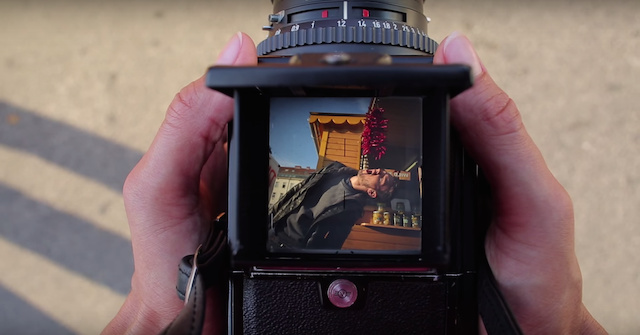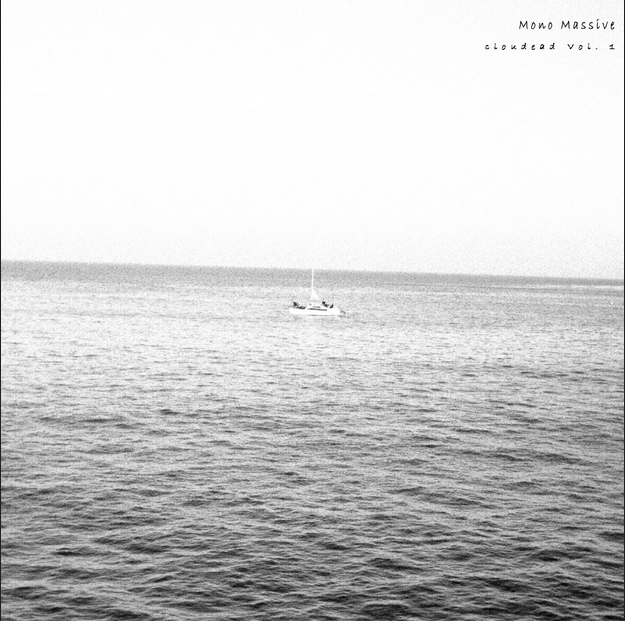"The hardest thing to do is something that is close…

Die Live-Qualitäten von Buraka Som Sistema bekamen letzten November die Besucher der RBMA-Club-Night zu spüren, als die portugiesische Kuduro-Band Wiens altehrwürdige „Arena“ regelrecht zum Beben brachte. Die mächtigen Basslines, eine Spezialität des Lissabonner Genre-Eintopfes, schreien schließlich nach einer schweißtreibenden Performance und verlangen eine entsprechende Reaktion des Publikums, die global dem gleichen Schema folgt: Egal ob in Tokio, Wien oder Maputo, niemand kann sich den süchtig machenden Grooves des Soundsystems aus Buraca entziehen. Kuduro nach der Rezeptur Buraka Som Sistemas bedeutetet aus diesem Grund auch Action, die an Rock- und Punkkonzerte erinnert. Zur Entwicklung des speziellen Sounds tragen innerhalb des Kollektivs besonders DJ Riot und Conductor bei, die wir zum Interview trafen. Zwei Musiker, die zu hundert Prozent hinter ihren Produktionen stehen und auf jede Frage, sei sie auch noch so problematisch, eine Antwort wissen.
The Message: Many critics describe the music of Buraka Som Sistema as „world music“ and call it a product of globalization. How does globalization affect the music of Buraka Som Sistema?
Conductor: First of all, we must be one of the most globalized music groups on earth: I am half Cuban, half Angolan, J-Wow is half Brazilian, half Portuguese, DJ Riot is half Mozambican, half Portuguese and Kalaf is from Curacao. You can’t be more globalized than that. We all have different influences and in the studio, we try to mix them together.
DJ Riot: It’s a very natural process. You don’t have to force it or anything else. But I’m not sure about the term „world music“. Maybe “world music” is changing, but at the same time, the basis for our music is and has always been “dance music”. When people talk about “world music”, they think about groups that make really traditional music and others following their style. But that’s not the case if you talk about Buraka Som Sistema. We just take our influences and transform them. We have our roots all over the world, but we live in Lisbon, in the centre of Europe. And that affects our music.
Do you see any changes regarding globalization in the last few years?
Conductor: Yes, of course. I’m appreciating the Internet a lot. It helps to make the world get a little bit smaller. Nowadays, it’s easier to connect with other people and to find new music. Music you would never have listened to ten years ago. In the early nineties, you just had MTV and your local radio station. Now, you are able to listen to stuff from channels all over the world.
„Buraka is a product of the Internet age“
Do you think that the Internet also impacts your music?
Conductor: Sure. We don’t look at the Internet as a place in which the people try to steal something from us. We use it as a tool. With the Internet, we can get different audiences and have the opportunity to explore new types of music.
DJ Riot:The Internet was really important for Buraka in the beginning. People from all over the world start discovering Buraka Som Sistema on MySpace. That was a great thing for us. So, I would say that Buraka is a product of the Internet age.
Many people discovered Buraka Som Sistema when they have played the FIFA 10 video game, because “Kalemba (Wegue Wegue)” is a part of the soundtrack.
Conductor: Yeah. I think that if people ask you to do something for video games or TV series, it’s a proof that as an artist, you are big or interesting enough for these things. So, I think that “Wegue Wegue” and the other song we did for a sportswear commercial were important steps. Such things are simply an opportunity to reach new audiences.
What is your opinion on the political situation in Angola?
Conductor: I haven’t been in Angola in the last two years, but I can say that there isn’t a democratic situation. It’s an African country like all the others. We used to go there once a year, and for us, it was mostly the same. I believe that some things are getting better, but the changes are not very deep.
In the last years, many – especially young – Portuguese moved to Angola because they think that they have more prospects for career advancement there.
DJ Riot: The job market is wider in Angola. Portugal is inside this European crisis, but it also has thick contacts to their former colonies like Angola and Mozambique. And people know that you can find good jobs in these countries. But it isn’t so easy to get them; you have to work really hard.
„Our job is to take something from the culture there and to spread it all over the world“
Do you think that this will lead to a political change in Angola?
Conductor: Honestly, I don’t know. Our main focus is on the whole social thing happening. When all the music companies coming up, that’s very interesting for us. In the political way, there are too many things that have to be said and to be done. Our job is to take something from the culture there and to spread it all over the world.
DJ Riot: I think we have to do our homework, when I hear all that questions (laughs). As musicians, we have created social awareness about the situation in our home countries. I think we should care most about the social aspects and less about the other things. And socially speaking, things are getting better by these days.
Dance music has a high status in Angola.
Conductor: Yes, since the Nineties. Angolans are very proud with what they do. When they started to invent Kuduro, they said: “This is our thing!” And it has gotten really huge: When you think about the nightclub scene and about the gap that has been built between the live musicians and them who make music at home, on their computers. People simply enjoy that type of music.
Do you think that the image of Africa has changed in the last years?
DJ Riot: I believe people start to see Africa without the lions and all that stereotypes. They are perceiving countries like Mozambique and Angola, because of the ongoing urbanization, different than ten years ago. Kuduro is also a good example for the change of Africa’s image. The consideration of Kuduro is similar, many people look on it different than in the Nineties, when this type of music was born.
In Europe, it seems that many people forget about the progress that many African countries and cities have achieved in the last years.
DJ Riot: There are slow forms of progress, cities like Maputo and Luanda are changing. Although they still have to cope with many huge problems. But Portugal is a good example that a country can change. I remember Portugal in the Eighties. In comparison with other European countries, it was like living in the Sixties. And that has changed quickly. In Africa, you can see a similar process. Africa seems to get pace back.
How would you describe the role of the Internet for the development of Africa?
Conductor: It’s one key element, for sure. It’s really big there.
DJ Riot: In Luanda, they use it for everything. To exchange music, to skype, for everything you can imagine.
Conductor: We have stuff that only happens there (laughs). The Internet is a big tool in developing countries.
In Mozambique, how many people use the Internet, in comparison with Angola?
DJ Riot: The evolution in Mozambique or Maputo is a bit different than in Angola. Maputo is smaller than Luanda and the society is very quiet. They don’t believe very much until they see it. Although it is my father’s country, I have never been there until we played a concert in Mozambique about two years ago. It was not how I supposed it would be, it’s different from how I was told. In comparison with Luanda, Maputo seems to be stuck in time. The reasons for this are the people and their kind of society.
Do you think that the popularity of „dance music“ is a result of the economic crisis – because people want to forget their worries?
DJ Riot: I don’t think so. Because when Buraka and other Kuduro bands had their first success, there was nothing like an economic crisis in Portugal. And 2006, when the crisis broke out, it has not any influence on the popularity of our music. It was not about that. But I think that with us, people are realizing that this music is ours – a project of the melting pot Lisbon.
What is the message behind your band name “Buraka Som Sistema”?
Conductor: It’s a suburb near Lisbon, where many people from the former colonies are living. Buraca is often connected, because of the economic status of the inhabitants, with a lot of bad things. It is the home of the working class. Some people call it ghetto. And we all have lived near that suburb.
Is Buraca the Bronx of Lisbon?
Conductor: A little bit (laughs). The people called us the “Sound system of Buraka” – we changed that slightly, so the name “Buraka Som Sistema” has been created.
„Without colonialism, I would not exist“
One main topic in Mozambique and Angola is colonialism. What are your personal experiences with colonialism?
DJ Riot: It sounds wicked, but I love it – without colonialism, I would not exist (laughs). No, it’s a difficult topic, but I can’t say that I’m very sad about it. Without colonialism, I wouldn’t be born; my parents would have never met each other. All the bad things have a good side. If people try to colonize other people, bad intentions are always in the background. But I believe that we all have the possibility to learn from each other. This will take some time, maybe after twenty years there will be something like a learning process. It’s a strange question that not many people ask us (laughs). So, of course colonialism is something bad, but in my case, I have to point out the good side. The reason is: I like being alive (laughs).
The people in Angola and Mozambique have different views on colonization than the Portuguese, I guess.
DJ Riot: Yes, because Portugal was the colonizing country. And many Portuguese are very sad with the loss of their colonies. They used to have servants and maids from Africa. Nowadays, their life looks shit for most of them. They are very frustrated. But f*ck them. All the people have equal chances. That’s positive, of course. But Portugal as a whole has good relationships with their former colonies.
When you think about the time after the decolonization, how would you describe the connection between Portugal and the former colonies?
DJ Riot: I think most of the wounds between the people have healed. Maybe some problems still exist. The reason for these problems is false political communication. But, to be honest: I don’t believe that the people in Angola and Mozambique think about their colonial past very often. There is something like a natural circulation between Portugal and the former colonies. As a kid in Portugal, I grew up with people from different countries. Not only with Angolans and Mozambicans, also Russians…
Conductor: …and Gypsies! And you get to know their type of music. In Lisbon, there is a huge mix of everything. You can find somebody listening to Polka, somebody listening to Zouk and another one listening to Kuduro as well. For us, there isn’t something like a cultural clash. It’s normal.
DJ Riot: Maybe people from the upper class have prejudices about the people from the suburb. They may think that they will steal something from them…
Conductor: I don’t know such people, but I believe that they exist (laughs).
DJ Riot: They exist everywhere. But we are living in exciting times. Nowadays, you can find Japanese kids making Kuduro, using their own slang. It’s amazing. That’s the real globalization.
„Communication is the case“
Is racism a big problem in Portugal?
DJ Riot: Yes, but I think it’s a big problem all over.
Conductor: Honestly, I think it’s a problem of communication nowadays. When people don’t know how to communicate with each other. That’s the main issue. They lack understanding about other cultures and habits, because they don’t communicate.
DJ Riot: It’s a problem all over the world. One reason for this is the handling of the immigrants. In many countries, immigrants are put in a box, placed very far away from Austrian kids or French kids or whatever. Look at the „banlieues“ in France, for example. People in these places, because of their isolation, just communicate with themselves. And the “natives” don’t have any contact with them. They are scared. And some people are simply racists.
Conductor: But people aren’t born as racists. They were raised up like this, because their parents were afraid of immigrants or something like that. But for me, communication is the case. With communication, you have the possibility to jump over that situation.
DJ Riot: I have a stupid example: There are some kids in Portugal who were raised by racist parents. Now, they are sixteen and listen to our music. And their parents say: “What are you doing to us!”
How does the economic crisis affect the people in Portugal? What has changed?
DJ Riot: A lot has changed. You get less money, less from everything. Fewer parties are organized, so we have fewer concerts to play. I think people from the suburbs feel it the worst. Many worked in the tourism sector. They are suffering under the decline of the tourists.
What are your connections to Brazil? Buraka Som Sistema’s music seems to be very popular there.
DJ Riot: I think it’s getting popular now. We did this track for Adidas‘ Samba Collection which was a little push for us. Just a little bit earlier, “Kalemba (Wegue Wegue)” was doing pretty well in Brazilian clubs. But it takes time to get people in Brazil interested in music from outside. So it’s a slow process for Buraka being known in Brazil. The biggest connection we have to Brazil is Blaya. She was born in Brazil and she keeps us in touch with the Brazilian music and dance scene. But generally, there’s a strong connection between Portugal and Brazil. Portugal always consumed Brazilian music.
„You ask yourself: ‚What the fuck is going on?'“
Buraka Som Sistema has played in a lot of different countries all over the world. When you think about the audiences, what are the main differences, for example between the African and the European crowds?
Conductor: The crowds in Africa and in Europe are pretty much the same, without big differences. In the end, we always feel the energy that people give us, when they are dancing, no matter if their dance moves are wrong or right. When we feel that the people at our concerts have a good time, we have fun on stage. And that’s the same everywhere. It does not depend on where we are playing.
Because of the song “Hangover”: What was the worst hangover you guys have ever experienced?
Conductor: There were many hangovers. One that I remember very well: We were going to Cape Verde, the trip took almost six hours. When we arrived, we heard that our show was delayed for a whole day.
DJ Riot: We stayed there for ten hours and did not know what to do. Everybody was tipsy and did something unexpected. After all, I felt like a chicken in the crowd. It was the worst hangover I have ever experienced.
What is the special element of Kuduro?
Conductor: Musically, the special thing of Kuduro is that you can’t differentiate between all the influences. Everything is merged. You can’t figure out what is the base of the music – you ask yourself: ‚What the fuck is going on there?‘ Kuduro makes it possible that you are able to listen to some kind of music you personally aren’t into. I think that this is the amazing thing. You don’t know what is going on next. It’s just surprising.
One thing that is strongly associated with Kuduro is the special dance style.
Conductor: Yeah, they copied something from breakdance and mixed it with their own dance moves. Dancing is a very important part of Kuduro. You can’t separate the music from the dancing and otherwise.
BURAKA SOM SISTEMA: FACEBOOK x TWITTER x INSTAGRAM x YOUTUBE
Last week, Buraka Som Sistema announced that they are going on indefinite hiatus after a final global tour next year.
Ähnliche Posts
- The Story of a Long Lost Relative // DJ Werd Interview
DJ Werd ist seit Jahren eine Art "graue Eminenz" im deutschen HipHop-Geschehen. Aufgewachsen in San Jose,…
- "Srebrenica is the fault of the UN" // Edo Maajka Interview
There is something going on in South-Eastern Europe and who can tell us better about…
- Interview mit Tokimonsta
Auf Tokimonsta wurde man vor gar nicht langer Zeit nur als wirklich engagierter Hörer aufmerksam.…








